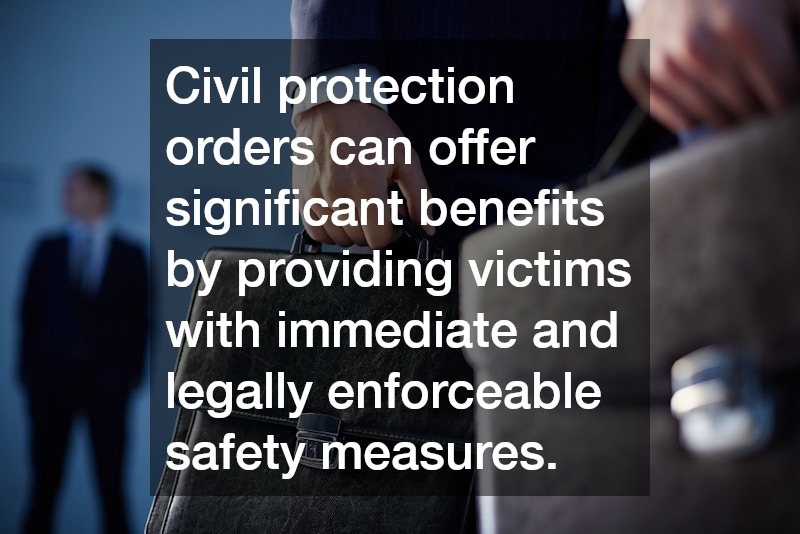Civil protection orders are legal injunctions established to protect individuals from harassment or harm. They are often issued in cases involving domestic violence, stalking, or sexual assault. These orders can set restrictions on the abuser’s actions, such as prohibiting contact or requiring them to keep a certain distance from the victim.
The primary purpose of a civil protection order is to ensure the safety and well-being of the person who has suffered harm or is at risk of harm. Unlike criminal charges, which are pursued by the state, civil protection orders are sought by the victim through a civil court process. This legal tool can provide victims with a sense of security and empower them to take control of their situation.
Civil protection orders can vary widely depending on the jurisdiction and specific circumstances of each case. Some orders may include provisions for temporary custody of children or mandates for the abuser to attend counseling sessions. The complexity and flexibility of these orders reflect the diverse situations in which they are needed.
How Civil Protection Orders Work
To obtain a civil protection order, the victim must file a petition with a court, describing the incidents of abuse or threats they have experienced. The court may then issue a temporary order to provide immediate protection, followed by a hearing to determine if a long-term order is warranted. It’s important to note that violating a civil protection order can have serious legal consequences for the abuser.
Once a judge grants a civil protection order, it becomes legally binding, and law enforcement can enforce it. This strengthens the victim’s position, ensuring that they have a legal recourse if the abuser fails to adhere to the order. The protection order serves as a powerful deterrent against further aggression, holding the harasser accountable for their actions.
A critical aspect of civil protection orders is their ability to be customized to meet the specific needs and situation of the victim. For example, the order might require the abuser to relinquish firearms or allow the victim exclusive use of a shared residence. This personalization helps to address the unique dynamics present in each situation, enhancing the effectiveness of the order.
Benefits and Limitations of Civil Protection Orders
Civil protection orders can offer significant benefits by providing victims with immediate and legally enforceable safety measures. They serve to alert law enforcement of the situation, creating a legal record that can be crucial for future legal proceedings. Additionally, these orders can empower victims to regain control over their lives by legally restricting the actions of their abusers.
However, it’s essential to acknowledge the limitations of civil protection orders. While they provide legal protection, they do not guarantee absolute safety from harm. Abusers may defy the orders, highlighting the importance of vigilant enforcement and support systems for victims. A vital statistic worth noting is that according to the National Network to End Domestic Violence, 81% of women with a protection order report feeling safer.
Moreover, obtaining a civil protection order can be a complex and emotionally challenging process for victims, often requiring legal assistance and supportive resources. Not all victims are aware of their eligibility or the steps required to obtain an order, which can be a barrier to accessing protection. Thus, raising awareness of the availability and process for obtaining civil protection orders is crucial for broader preventative measures.
The Role of Community and Legal Support
Community and legal support play a pivotal role in the effectiveness of civil protection orders. Support from advocacy groups can provide victims with information, guidance, and emotional support throughout the legal process. These organizations often act as liaisons between victims and the legal system, ensuring that the victims’ needs and rights are addressed.
Legal aid services are equally critical in helping victims navigate the complexities of applying for a civil protection order. Access to knowledgeable legal professionals can significantly enhance the likelihood of obtaining a successful order. These resources can also assist in enforcing the order, ensuring swift responses to any violations.
Raising public awareness about civil protection orders and the resources available to victims can lead to greater utilization and effectiveness of these legal tools. Efforts should include educating the community about recognizing signs of abuse and understanding the legal options available. By fostering a more informed community, victims can be more proactive in seeking help and protection.
.




